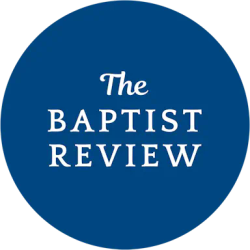Every few months or so, SBC social media waters get churned by calls for reforming the trustee system of SBC entities. In all fairness, the scrutiny is probably deserved given some of the complete fiascos we’ve witnessed in the last couple of years. Despite these very public blunders by some entity boards, I believe that we can remain confident that, while there is no perfect system or board, the majority of our boards are healthy and served by faithful Southern Baptists from all walks of life.
The purpose of this article is to share my own personal experience as a trustee on the board of Gateway Seminary. I cannot speak for all of the other boards in the SBC, or even other Gateway trustees, but I do hope that by sharing my experience, Southern Baptists will be encouraged by the leadership of our seminary in the West, and, perhaps, gain confidence that our system—though imperfect—does work.
At the 2019 annual meeting in Birmingham, I was elected by messengers to serve on the board of trustees of Gateway Seminary. Up to that point, I had no idea what trustees did, how the trustee system works, and, honestly, much of anything about Gateway Seminary. I just knew that it was an honor to serve our convention of churches. What I have learned in my first five years as a trustee is that Gateway is strong and healthy from its faculty, executive leadership, and the way in which our board operates.
All my lack of knowledge and naiveté regarding Gateway and what it meant to be a trustee quickly dissipated a couple of months later when I was required to attend the new trustee orientation in Ontario, CA. At Gateway, every newly elected trustee is required to attend a two-day orientation in which they receive a binder full of bylaws, procedural policies, legal information, board committee information—everything a trustee needs to faithfully steward the seminary. Each new trustee is also paired with a second-term trustee in a mentor-mentee partnership. At each spring trustee meeting, the trustees go through board training in order for us to learn how to be a more efficient and effective board for Gateway.
Here are three things that I have observed during my time serving as a trustee that I think make a healthy board:
1. Fidelity
Former Gateway Seminary President Dr. Jeff Iorg is well known for saying, “The mission matters most.” For Gateway Seminary, president Dr. Adam Groza, faculty, and board of trustees, our mission is to shape leaders who expand God's kingdom around the world. No trustee comes to a board meeting with personal agendas. Decisions are not made based on outside pressure from social media or special interest groups. The responsibility of trustees is to uphold the mission of the entity and ensure fidelity to the mission (which, for our entities, includes the Baptist Faith & Message 2000). Trustees are elected from cooperating churches across our denomination and, because the entity belongs to churches of the SBC, we seek to faithfully represent them.
2. Transparency
So much criticism has recently been directed toward SBC entity boards and trustees with claims of a “lack of transparency” being made. How one defines “transparency” is certainly up for debate, but at the same time, there must be a level of openness between those who represent Southern Baptists as trustees and the churches of the SBC. There are often sensitive, confidential, and even legal matters that boards and trustees must deal with that cannot be discussed publicly. However, I am grateful for the open transparency of our seminary with those to whom it belongs.
There must also be full transparency between the president and the trustees. During my first five years on the board of trustees, Dr. Jeff Iorg served as president of Gateway. The regular communication through email and the availability and access to him through phone calls and text messaging was a breath of fresh air and an assurance that the president did not feel autonomous or singularly authoritative. It is an encouragement to me now that Dr. Adam Groza has continued this practice of transparency as he has assumed the presidency of Gateway.
3. Accountability
Accountability is crucial to the trust of our trustee system of boards. While there have been accusations of boards and entity presidents not being held accountable for their actions and decisions, I have found just the opposite to be true at Gateway. The president, Dr. Adam Groza, is accountable to the trustees. The board of trustees are not simply a group of “yes” men and women. We do not rubber stamp any and everything the president decides to do. Rather, the president is open to dialogue, critique, and even correction. The trustees are accountable to one another, to the churches of the SBC, and ultimately to God. Our board of trustee meetings are filled with Scripture and seasons of prayer.
My time serving as a trustee has been nothing but a joy and an honor. It is a task that I and the other trustees with whom I serve take very seriously. We know that we have been entrusted with stewarding the seminary that belongs to the churches of the SBC. Southern Baptists, you can be proud of your seminary in the West and the work that we are doing to shape leaders who expand God's kingdom around the world.
Editor's Note: As a part of its commitment to fostering conversation within the Southern Baptist Convention, the Baptist Review may publish editorials that espouse viewpoints that are not necessarily shared by the TBR team or other contributors. We welcome submissions for responses and rebuttals to any editorials as we seek to host meaningful conversations about the present and future of our convention.


